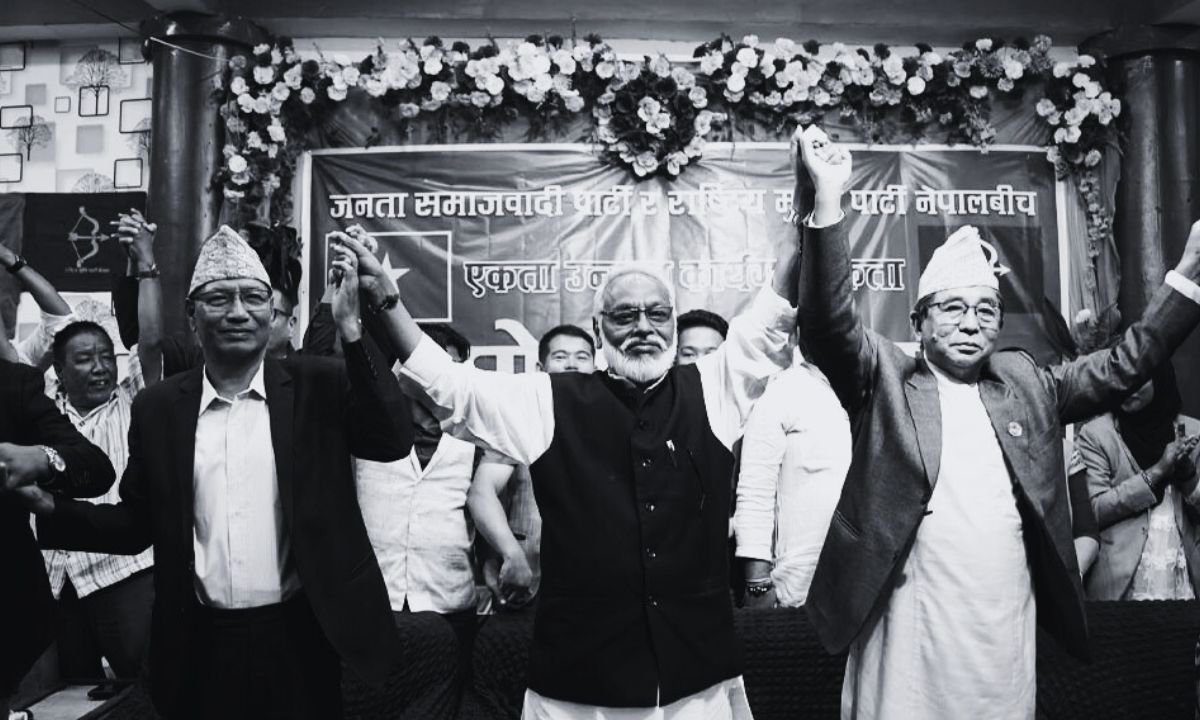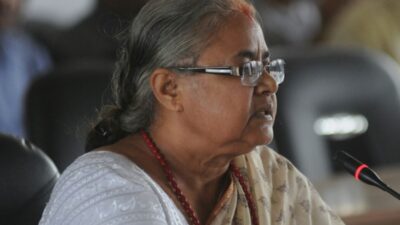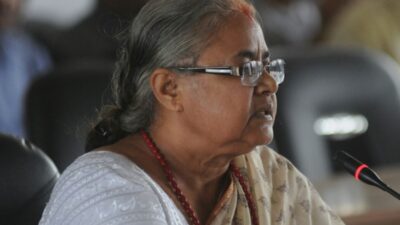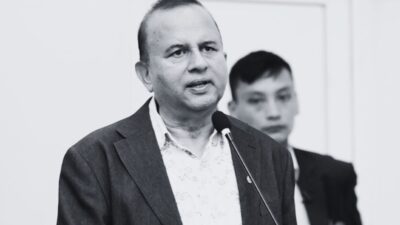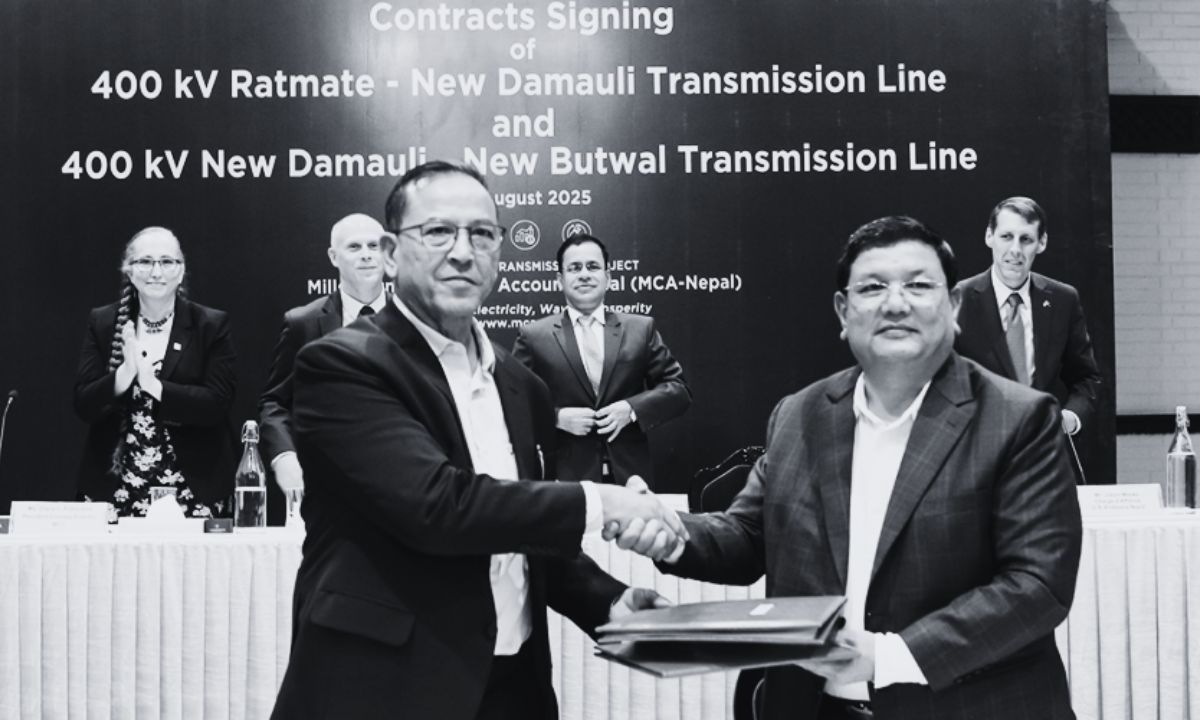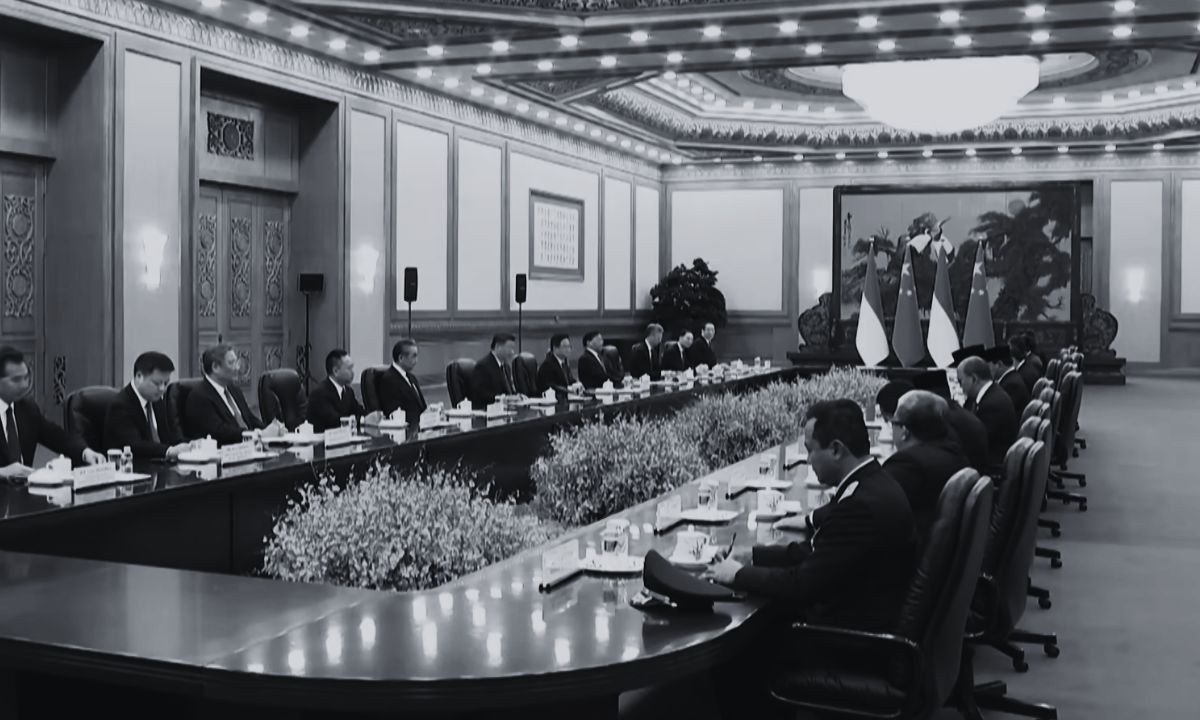- News
- National
- WorldExplore stories, events, and insights from across the globe. Stay updated on international affairs, cultural highlights, and impactful moments that connect us all in the world we share.
- COVIDAll the COVID updates you actually need — in one place. From rising cases and health alerts to vaccine news and government responses in Nepal, we track how the pandemic is evolving right now.
- OpinionTransform your living spaces with inspiration, tips, and trends in interior design. From minimalist decor to bold statements, find ideas for every style and budget.
- MausamWhat’s the vibe outside in Nepal? We got you. From surprise rain in Pokhara to record heat in the Terai, Mausam keeps you in the loop with real-time updates, sky moods, and climate chaos. Daily forecasts, weather memes, wild climate shifts—basically, everything the sky’s throwing at Nepal.
- Entertainment
- Tech X Innovation
- StartupsNew tech companies – Coverage on emerging businesses and cool new ideas. Funding rounds – Reports on who’s investing in which startup. Incubators/accelerators – Stories from Y Combinator, Techstars, and others. Founder interviews – Insightful chats with the people behind the tech. Focuses on early-stage innovation, entrepreneurship, and the business side of tech creation.
- Green TechSustainable innovations – Greener solutions in daily tech. Electric vehicles – From Tesla to two-wheelers. Solar & clean energy tech – Advances in renewable energy. Highlights environmentally friendly technology shaping the future.
- Social MediaNews on Facebook, Instagram, X (Twitter), TikTok, Snapchat, Threads, etc. – Platform-specific updates and controversies. Influencer trends – Who’s going viral, and why. Platform updates & features – Algorithm tweaks, UI changes, etc. Social media marketing tips – Strategies for brands and creators. A must-have category for Gen Z audiences and digital culture followers.
- Tech BusinessBig Tech (Apple, Google, Meta, etc.) – Corporate strategies and leadership. Mergers & acquisitions – Who’s buying whom. Market trends – Stocks, earnings, and business moves. Tech stocks & IPOs – Valuation and investment angles. Takes a business lens on tech developments and industry movements.
- AI & InnovationChatGPT, Google Gemini, etc. – Deep dives into trending AI tools. AI tools for creators – Helping writers, artists, and editors. Robotics & automation – Cool robots and smart factories. Research & futuristic tech – Sci-fi-level innovation becoming reality. Where bleeding-edge meets practical utility — future tech made now.
- Apps & SoftwareApp launches and reviews – First looks, ratings, and real-world testing. Productivity tools – Apps that boost work and personal efficiency. Social media tools – Analytics, schedulers, and growth platforms. Updates to existing platforms – Major feature changes or UI overhauls. Covers the ever-growing world of applications that power our daily digital lives.
- Gadgets & DevicesSmartphones, laptops, wearables – Launches, leaks, and hands-on reviews. Reviews & comparisons – Which device is best, and why? Launch events (Apple, Samsung, etc.) – Coverage of major tech product events. Focuses on the hardware and tools that define the modern tech lifestyle.
- Better Living
- HealthStay informed about health and wellness with expert advice, fitness tips, and the latest medical breakthroughs. Your guide to a healthier and happier life.
- LifestyleExplore stories and advice on living your best life. From personal growth to entertainment, dive into the latest in lifestyle trends and inspiration.
- FoodySavor the world of culinary delights with news, recipes, and food trends. From gourmet dishes to comfort food, indulge in the flavors that bring people together.
- Sports
- Gaming
- TransfersWho’s in, who’s out, and who’s about to shake up the football world? 🚨 From wild rumors to official deals, we track every move that matters. Whether it’s a superstar switch or a lowkey wonderkid transfer, Kirib’s got the tea. ✅ Confirmed Transfers – Official club announcements with fee details and contract length. 🔁 Rumors & Talks – Trusted reports on who’s linked with who, and how real the deal is. 🌍 Global Coverage – Premier League, La Liga, Serie A, Bundesliga, and beyond. 🧠 Breakdowns – Why the move matters, how the player fits, and what fans are saying. 🎯 Wonderkid Watch – The next-gen ballers on the move and why you should care. ⏱️ Deadline Day Drama – Live updates, chaos, and last-minute deals you don’t want to miss. 💸 Transfer Fees & Wages – The numbers behind the moves—no fluff, just facts. 🎥 Player Highlights – Quick clips and stats to see what the hype’s about.
- CricketFrom local legends to global icons — this is your home for everything cricket. Whether it’s Nepal chasing history or world giants battling in packed stadiums, we bring fast, focused, and fresh coverage. Stay tuned for: Nepal men’s and women’s national team updates Live scores, match previews & sharp predictions Nepal Premier League (NPL) & domestic tournaments ICC events, World Cups, and qualifiers Player spotlights, rising stars, and milestones Exclusive news, quick stats, and squad insights Catch every boundary, wicket, and headline — only on Kirib.
- Football
- Other Sports
- Premier LeagueThe most-watched league on the planet — now with a Kirib spin 🌍⚡From Old Trafford to Anfield, we bring the Premier League closer to Nepal What you’ll get here: • 🗓️ Weekly fixtures & match schedules (Nepal Time)• 🧢 Previews, predictions & bold takes• 📊 Results, standings & what they mean• 🚨 Transfer buzz, injury updates & drama• 🔥 Fan culture, memes & top moments• 📺 Storylines that matter — on and off the pitch
- World Cup 2026Football’s biggest stage, covered in Kirib style. Fast previews, bold predictions, squad news, stats that slap, and viral moments — all in Nepal Time. What’s Inside: Fixtures & results Match previews & hot takes Squad updates & injuries Meme-worthy moments Knockout drama Nepali POV on the global game
- Champions LeagueEurope’s biggest stage. Global hype. Local timing.We cover the UEFA Champions League with speed, style, and a Nepali lens What you’ll find here: • 🗓️ Fixtures & full schedules (📍Nepal Time)• ⚔️ Match previews & key battles• 📊 Results & post-match breakdowns• 🔥 Player watch & breakout stars• 🧠 Tactical insights, memes & culture takes• 🏆 Road to the Final — every twist, every turn
- Nepal Premier LeagueAll the latest news, match previews, results, player updates, and behind-the-scenes coverage from the Nepal Premier League (NPL), Nepal’s top domestic T20 cricket tournament. Lineups, auction details, schedules, and standout performances throughout the season.
- Indian Premier LeagueCricket’s wildest ride, delivered with flair and filters 🎯🔥 From sixes to stumps, the IPL is more than a league — it’s a festival, and we’re covering every moment. What you’ll find here: • 🗓️ Match schedules & live updates (Nepal Time) • 🧢 Team news, playing XIs & preview breakdowns • 📊 Results, points table & playoff race • 💸 Transfer auctions, trades & behind-the-scenes buzz • 🔥 Player highlights, clutch finishes & viral moments • 🎭 Meme drops, fan reactions & post-match chaos The IPL is fast, loud, and full of energy — just like Kirib.
- Standings
- News
- National
- WorldExplore stories, events, and insights from across the globe. Stay updated on international affairs, cultural highlights, and impactful moments that connect us all in the world we share.
- COVIDAll the COVID updates you actually need — in one place. From rising cases and health alerts to vaccine news and government responses in Nepal, we track how the pandemic is evolving right now.
- OpinionTransform your living spaces with inspiration, tips, and trends in interior design. From minimalist decor to bold statements, find ideas for every style and budget.
- MausamWhat’s the vibe outside in Nepal? We got you. From surprise rain in Pokhara to record heat in the Terai, Mausam keeps you in the loop with real-time updates, sky moods, and climate chaos. Daily forecasts, weather memes, wild climate shifts—basically, everything the sky’s throwing at Nepal.
- Entertainment
- Tech X Innovation
- StartupsNew tech companies – Coverage on emerging businesses and cool new ideas. Funding rounds – Reports on who’s investing in which startup. Incubators/accelerators – Stories from Y Combinator, Techstars, and others. Founder interviews – Insightful chats with the people behind the tech. Focuses on early-stage innovation, entrepreneurship, and the business side of tech creation.
- Green TechSustainable innovations – Greener solutions in daily tech. Electric vehicles – From Tesla to two-wheelers. Solar & clean energy tech – Advances in renewable energy. Highlights environmentally friendly technology shaping the future.
- Social MediaNews on Facebook, Instagram, X (Twitter), TikTok, Snapchat, Threads, etc. – Platform-specific updates and controversies. Influencer trends – Who’s going viral, and why. Platform updates & features – Algorithm tweaks, UI changes, etc. Social media marketing tips – Strategies for brands and creators. A must-have category for Gen Z audiences and digital culture followers.
- Tech BusinessBig Tech (Apple, Google, Meta, etc.) – Corporate strategies and leadership. Mergers & acquisitions – Who’s buying whom. Market trends – Stocks, earnings, and business moves. Tech stocks & IPOs – Valuation and investment angles. Takes a business lens on tech developments and industry movements.
- AI & InnovationChatGPT, Google Gemini, etc. – Deep dives into trending AI tools. AI tools for creators – Helping writers, artists, and editors. Robotics & automation – Cool robots and smart factories. Research & futuristic tech – Sci-fi-level innovation becoming reality. Where bleeding-edge meets practical utility — future tech made now.
- Apps & SoftwareApp launches and reviews – First looks, ratings, and real-world testing. Productivity tools – Apps that boost work and personal efficiency. Social media tools – Analytics, schedulers, and growth platforms. Updates to existing platforms – Major feature changes or UI overhauls. Covers the ever-growing world of applications that power our daily digital lives.
- Gadgets & DevicesSmartphones, laptops, wearables – Launches, leaks, and hands-on reviews. Reviews & comparisons – Which device is best, and why? Launch events (Apple, Samsung, etc.) – Coverage of major tech product events. Focuses on the hardware and tools that define the modern tech lifestyle.
- Better Living
- HealthStay informed about health and wellness with expert advice, fitness tips, and the latest medical breakthroughs. Your guide to a healthier and happier life.
- LifestyleExplore stories and advice on living your best life. From personal growth to entertainment, dive into the latest in lifestyle trends and inspiration.
- FoodySavor the world of culinary delights with news, recipes, and food trends. From gourmet dishes to comfort food, indulge in the flavors that bring people together.
- Sports
- Gaming
- TransfersWho’s in, who’s out, and who’s about to shake up the football world? 🚨 From wild rumors to official deals, we track every move that matters. Whether it’s a superstar switch or a lowkey wonderkid transfer, Kirib’s got the tea. ✅ Confirmed Transfers – Official club announcements with fee details and contract length. 🔁 Rumors & Talks – Trusted reports on who’s linked with who, and how real the deal is. 🌍 Global Coverage – Premier League, La Liga, Serie A, Bundesliga, and beyond. 🧠 Breakdowns – Why the move matters, how the player fits, and what fans are saying. 🎯 Wonderkid Watch – The next-gen ballers on the move and why you should care. ⏱️ Deadline Day Drama – Live updates, chaos, and last-minute deals you don’t want to miss. 💸 Transfer Fees & Wages – The numbers behind the moves—no fluff, just facts. 🎥 Player Highlights – Quick clips and stats to see what the hype’s about.
- CricketFrom local legends to global icons — this is your home for everything cricket. Whether it’s Nepal chasing history or world giants battling in packed stadiums, we bring fast, focused, and fresh coverage. Stay tuned for: Nepal men’s and women’s national team updates Live scores, match previews & sharp predictions Nepal Premier League (NPL) & domestic tournaments ICC events, World Cups, and qualifiers Player spotlights, rising stars, and milestones Exclusive news, quick stats, and squad insights Catch every boundary, wicket, and headline — only on Kirib.
- Football
- Other Sports
- Premier LeagueThe most-watched league on the planet — now with a Kirib spin 🌍⚡From Old Trafford to Anfield, we bring the Premier League closer to Nepal What you’ll get here: • 🗓️ Weekly fixtures & match schedules (Nepal Time)• 🧢 Previews, predictions & bold takes• 📊 Results, standings & what they mean• 🚨 Transfer buzz, injury updates & drama• 🔥 Fan culture, memes & top moments• 📺 Storylines that matter — on and off the pitch
- World Cup 2026Football’s biggest stage, covered in Kirib style. Fast previews, bold predictions, squad news, stats that slap, and viral moments — all in Nepal Time. What’s Inside: Fixtures & results Match previews & hot takes Squad updates & injuries Meme-worthy moments Knockout drama Nepali POV on the global game
- Champions LeagueEurope’s biggest stage. Global hype. Local timing.We cover the UEFA Champions League with speed, style, and a Nepali lens What you’ll find here: • 🗓️ Fixtures & full schedules (📍Nepal Time)• ⚔️ Match previews & key battles• 📊 Results & post-match breakdowns• 🔥 Player watch & breakout stars• 🧠 Tactical insights, memes & culture takes• 🏆 Road to the Final — every twist, every turn
- Nepal Premier LeagueAll the latest news, match previews, results, player updates, and behind-the-scenes coverage from the Nepal Premier League (NPL), Nepal’s top domestic T20 cricket tournament. Lineups, auction details, schedules, and standout performances throughout the season.
- Indian Premier LeagueCricket’s wildest ride, delivered with flair and filters 🎯🔥 From sixes to stumps, the IPL is more than a league — it’s a festival, and we’re covering every moment. What you’ll find here: • 🗓️ Match schedules & live updates (Nepal Time) • 🧢 Team news, playing XIs & preview breakdowns • 📊 Results, points table & playoff race • 💸 Transfer auctions, trades & behind-the-scenes buzz • 🔥 Player highlights, clutch finishes & viral moments • 🎭 Meme drops, fan reactions & post-match chaos The IPL is fast, loud, and full of energy — just like Kirib.
- Standings
Now Reading: Rajendra Mahato’s ‘Unfinished Revolution’
- 01
Rajendra Mahato’s ‘Unfinished Revolution’
- News//
- National//
- World//Explore stories, events, and insights from across the globe. Stay updated on international affairs, cultural highlights, and impactful moments that connect us all in the world we share.
- COVID//All the COVID updates you actually need — in one place. From rising cases and health alerts to vaccine news and government responses in Nepal, we track how the pandemic is evolving right now.
- Opinion//Transform your living spaces with inspiration, tips, and trends in interior design. From minimalist decor to bold statements, find ideas for every style and budget.
- Mausam//What’s the vibe outside in Nepal? We got you. From surprise rain in Pokhara to record heat in the Terai, Mausam keeps you in the loop with real-time updates, sky moods, and climate chaos. Daily forecasts, weather memes, wild climate shifts—basically, everything the sky’s throwing at Nepal.
- Entertainment//
- Tech X Innovation//
- Startups//New tech companies – Coverage on emerging businesses and cool new ideas. Funding rounds – Reports on who’s investing in which startup. Incubators/accelerators – Stories from Y Combinator, Techstars, and others. Founder interviews – Insightful chats with the people behind the tech. Focuses on early-stage innovation, entrepreneurship, and the business side of tech creation.
- Green Tech//Sustainable innovations – Greener solutions in daily tech. Electric vehicles – From Tesla to two-wheelers. Solar & clean energy tech – Advances in renewable energy. Highlights environmentally friendly technology shaping the future.
- Social Media//News on Facebook, Instagram, X (Twitter), TikTok, Snapchat, Threads, etc. – Platform-specific updates and controversies. Influencer trends – Who’s going viral, and why. Platform updates & features – Algorithm tweaks, UI changes, etc. Social media marketing tips – Strategies for brands and creators. A must-have category for Gen Z audiences and digital culture followers.
- Tech Business//Big Tech (Apple, Google, Meta, etc.) – Corporate strategies and leadership. Mergers & acquisitions – Who’s buying whom. Market trends – Stocks, earnings, and business moves. Tech stocks & IPOs – Valuation and investment angles. Takes a business lens on tech developments and industry movements.
- AI & Innovation//ChatGPT, Google Gemini, etc. – Deep dives into trending AI tools. AI tools for creators – Helping writers, artists, and editors. Robotics & automation – Cool robots and smart factories. Research & futuristic tech – Sci-fi-level innovation becoming reality. Where bleeding-edge meets practical utility — future tech made now.
- Apps & Software//App launches and reviews – First looks, ratings, and real-world testing. Productivity tools – Apps that boost work and personal efficiency. Social media tools – Analytics, schedulers, and growth platforms. Updates to existing platforms – Major feature changes or UI overhauls. Covers the ever-growing world of applications that power our daily digital lives.
- Gadgets & Devices//Smartphones, laptops, wearables – Launches, leaks, and hands-on reviews. Reviews & comparisons – Which device is best, and why? Launch events (Apple, Samsung, etc.) – Coverage of major tech product events. Focuses on the hardware and tools that define the modern tech lifestyle.
- Better Living//
- Health//Stay informed about health and wellness with expert advice, fitness tips, and the latest medical breakthroughs. Your guide to a healthier and happier life.
- Lifestyle//Explore stories and advice on living your best life. From personal growth to entertainment, dive into the latest in lifestyle trends and inspiration.
- Foody//Savor the world of culinary delights with news, recipes, and food trends. From gourmet dishes to comfort food, indulge in the flavors that bring people together.
- Sports//
- Gaming//
- Transfers//Who’s in, who’s out, and who’s about to shake up the football world? 🚨 From wild rumors to official deals, we track every move that matters. Whether it’s a superstar switch or a lowkey wonderkid transfer, Kirib’s got the tea. ✅ Confirmed Transfers – Official club announcements with fee details and contract length. 🔁 Rumors & Talks – Trusted reports on who’s linked with who, and how real the deal is. 🌍 Global Coverage – Premier League, La Liga, Serie A, Bundesliga, and beyond. 🧠 Breakdowns – Why the move matters, how the player fits, and what fans are saying. 🎯 Wonderkid Watch – The next-gen ballers on the move and why you should care. ⏱️ Deadline Day Drama – Live updates, chaos, and last-minute deals you don’t want to miss. 💸 Transfer Fees & Wages – The numbers behind the moves—no fluff, just facts. 🎥 Player Highlights – Quick clips and stats to see what the hype’s about.
- Cricket//From local legends to global icons — this is your home for everything cricket. Whether it’s Nepal chasing history or world giants battling in packed stadiums, we bring fast, focused, and fresh coverage. Stay tuned for: Nepal men’s and women’s national team updates Live scores, match previews & sharp predictions Nepal Premier League (NPL) & domestic tournaments ICC events, World Cups, and qualifiers Player spotlights, rising stars, and milestones Exclusive news, quick stats, and squad insights Catch every boundary, wicket, and headline — only on Kirib.
- Football//
- Other Sports//
- Premier League//The most-watched league on the planet — now with a Kirib spin 🌍⚡From Old Trafford to Anfield, we bring the Premier League closer to Nepal What you’ll get here: • 🗓️ Weekly fixtures & match schedules (Nepal Time)• 🧢 Previews, predictions & bold takes• 📊 Results, standings & what they mean• 🚨 Transfer buzz, injury updates & drama• 🔥 Fan culture, memes & top moments• 📺 Storylines that matter — on and off the pitch
- World Cup 2026//Football’s biggest stage, covered in Kirib style. Fast previews, bold predictions, squad news, stats that slap, and viral moments — all in Nepal Time. What’s Inside: Fixtures & results Match previews & hot takes Squad updates & injuries Meme-worthy moments Knockout drama Nepali POV on the global game
- Champions League//Europe’s biggest stage. Global hype. Local timing.We cover the UEFA Champions League with speed, style, and a Nepali lens What you’ll find here: • 🗓️ Fixtures & full schedules (📍Nepal Time)• ⚔️ Match previews & key battles• 📊 Results & post-match breakdowns• 🔥 Player watch & breakout stars• 🧠 Tactical insights, memes & culture takes• 🏆 Road to the Final — every twist, every turn
- Nepal Premier League//All the latest news, match previews, results, player updates, and behind-the-scenes coverage from the Nepal Premier League (NPL), Nepal’s top domestic T20 cricket tournament. Lineups, auction details, schedules, and standout performances throughout the season.
- Indian Premier League//Cricket’s wildest ride, delivered with flair and filters 🎯🔥 From sixes to stumps, the IPL is more than a league — it’s a festival, and we’re covering every moment. What you’ll find here: • 🗓️ Match schedules & live updates (Nepal Time) • 🧢 Team news, playing XIs & preview breakdowns • 📊 Results, points table & playoff race • 💸 Transfer auctions, trades & behind-the-scenes buzz • 🔥 Player highlights, clutch finishes & viral moments • 🎭 Meme drops, fan reactions & post-match chaos The IPL is fast, loud, and full of energy — just like Kirib.
- Standings//
Rajendra Mahato, a well-known political figure in Nepal, has a long history of being involved in issues related to the Madhesh region and identity politics. He has often been seen as a shrewd political opportunist.
After losing the 2022 general election, Mahato was left without a seat in parliament. This pushed him out of mainstream power politics, and he turned his focus toward an identity-based movement. He also started to broaden his message, talking about the rights of indigenous people in the hills and mountains, not just the Madhesi community.
Recently, Mahato has decided to work with the Janata Samajwadi Party, a ruling party led by Ashok Rai. This new partnership could lead to a full merger and brings Mahato closer to a position of power once again.
Mahato’s “Unfinished Revolution”
Mahato recently published a book called “Adhura Kranti” (Unfinished Revolution), where he argues for the creation of a “multi-national state” in Nepal. He believes that without this, a true revolution for identity, rights, and good governance is not possible. He left his previous party, Loktantrik Samajwadi Party (LSP), to start a new party called the Rastriya Mukti Party (National Liberation Party) to pursue this vision.
Now, he is joining forces with Ashok Rai to achieve his “unfinished revolution.” It remains to be seen if this alliance will genuinely advance his cause or if it’s another step for him to regain political power.
A History of Shifting Alliances
Mahato’s political career is marked by constantly changing alliances. He has a reputation for joining different parties and coalitions depending on what benefits him at the time.
For example, he is currently part of the Federal Democratic Alliance, a group of seven parties. At the same time, he is now forming a new alliance with Ashok Rai, who split from a different party led by Upendra Yadav. Mahato’s supporters say these alliances serve different purposes, but critics see it as a pattern of political convenience.
A Controversial Stance
When Mahato briefly served as Deputy Prime Minister in 2021, he sparked controversy by immediately vowing to work toward a “multi-national state.” Critics accused him of undermining the constitution, and he later had to issue a statement clarifying that he was committed to the constitution.
However, after losing the election, he went back to promoting this same idea. This shows that the “multi-national state” concept is a core part of his political agenda, which he now hopes to advance through his new partnership with Ashok Rai.

